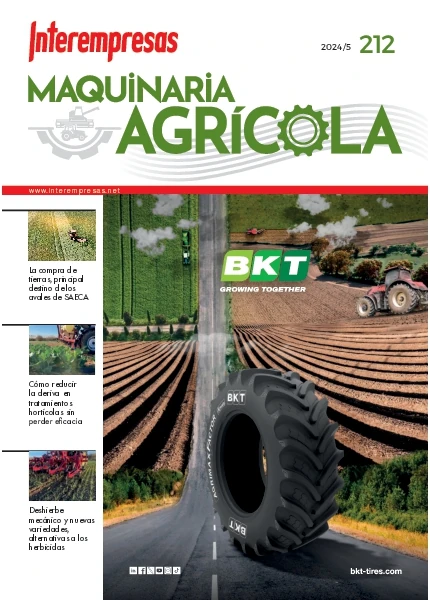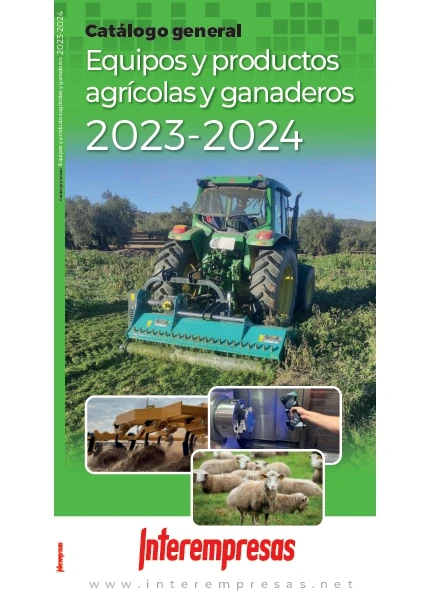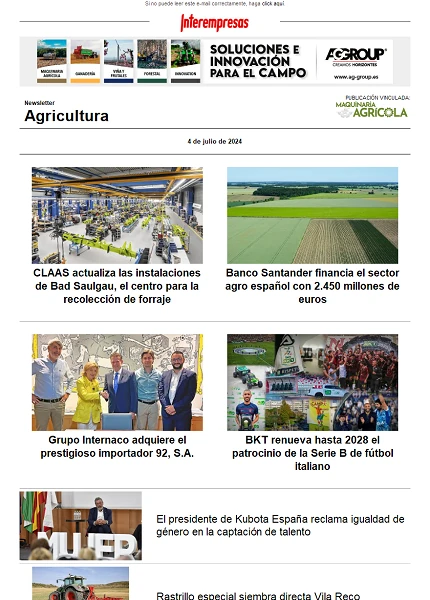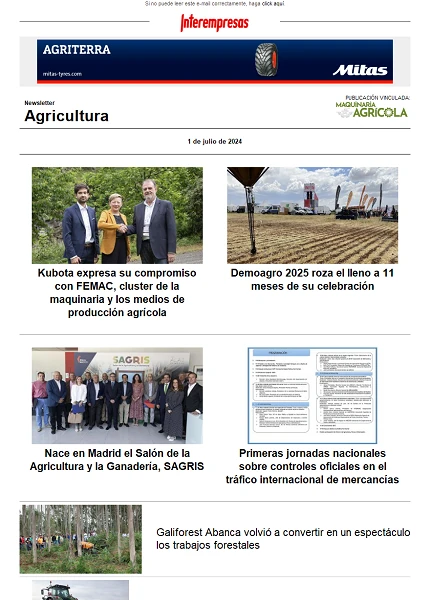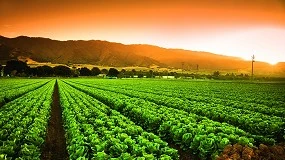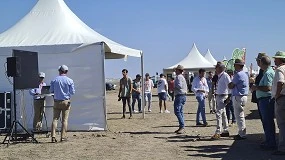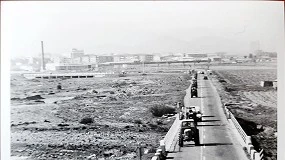Interview with Miguel Lopez, Secretary general of COAG
November 26, 2010
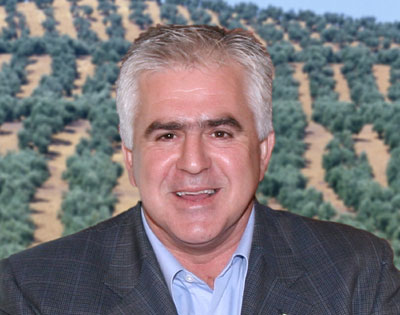
To what level do the objectives of the proposal put forward by Commissioner Ciolos, on 17 November consider ambitious?
On the one hand, this proposal seems very interesting. We support the analysis of the sector to consider strategic and also ensuring the balance and the well-being of the rural areas. Thus, the document recognizes that the sector is going through a series of bad circumstances as well as it supports a tremendous pressure from the distribution, which leads to a loss, increasing income. In fact, the standard of living is very different between the urban and rural areas, something which is also reflected in the text. It also calls for a sustainable production, quality, within a framework of food security, territorial and productive diversity. In addition, there is support for SMEs, employment, and even spoke of establishing ceilings per farm in the area of subsidies or aid. The latter for us is positive, because we believe that cannot be justified, from a social point of view, certain items. And then, something very important: the proposal recognizes as fundamental sector to maintain natural resources and public goods. This approach we like, talks about a green growth in the CAP. The latter with nuances, so they should not go to reasons of conditionality, which limit the Spanish competitiveness and encourage uncontrolled production of third countries, whose production systems have nothing to do with our. Otherwise, this would rather be a distorting factor.
On the other hand, what we are concerned? As the financial aspects. More budget is needed to more farmers, more countries and surface to grow. If not, this will lead, in all likelihood, to a policy of restraint. In short, the proposal in some points is very ambitious and is in line with objectives that we share. But in some respects, it is very disappointing and we say very clearly. First of all, the budget, as I've said. Secondly, it is not logical the Elimination of all the mechanisms of regulation of markets, that there is even a possibility of having a framework of stable and balanced negotiation within the agri-food chain. I refer to the power of the distribution to the producers, first link in the chain, to which must be added, on occasions, the processing industry as well as abuse borne by consumers, as laying down a few abusive margins. And in doing so, we need a specific legislative framework to correct the current situation. It is not reasonable that markets to manage crisis situations are not involved. And what about the strategic food stocks to be used to deal with a possible food crisis. Something worrying, because we are talking about 500 million Europeans. It should guide the production system so that these things happen and work in a context of food sovereignty. Also, it should handle situations of sagging prices, excedentes…el field depends on factors such as the climate, are not controllable. Another very important thing: the principle of Community preference. We're a little tired. It cannot be that the country be you has damaged with the reform of 2003 in basic productions such as cereals, milk, for example, and meanwhile, open preferential agreements with third countries. In other words, we are heading towards a process of growing liberalization. Proposal of Ciolos no mention of the market, agri-food chain, the abuse of the distribution, or the process of trade liberalization to that submitted to the food. The right to food is universal and can not deliver to the market as a value and is already.
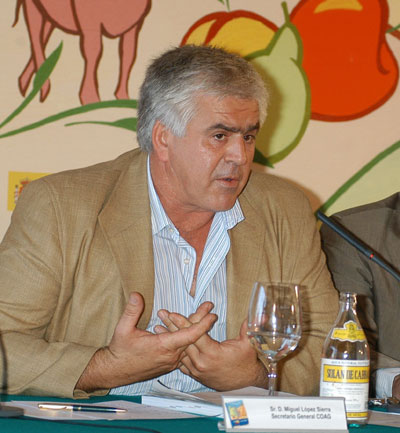
One of the great innovations that presents the document is the link support to farmers in active, as well as establishing a ceiling on aid. How they value this change in philosophy?
Since COAG, feel us well here although it has yet to define what is meant by 'active'. The concept of professional to main title, is farmer or livestock, already so we manejábamos it for a long time in our Organization, so that the proposal has much similarity with our permanent address. If I under the concept of asset refers to anyone who holds the activity and produces, we are absolutely agreed. And we also believe that a policy of prioritization should be exercised. When there is not enough budget, should be shared so well. In this regard, to consider a number of roofs in this regard, believe us something reasonable. There are millions of dollars subsidy for public money is not justified. I'm talking about farms that receive over a million euros: this is no longer so viva family, unless they carry out a given activity and to generate much employment. Not can only subsidize by having land. It does not hold.
It was anticipated that the amount budgeted for the CAP would not increase, despite being frozen since 2003 and which should now be distributed among 27 Member States?
Those who work in the sector, long time, we knew that in the end, the countries of Eastern Europe would be incorporated. Initially, we believe that if it would increase the number of countries Member, would also grow the budget. At the end we've caught in a context of economic crisis, without knowing what budget would have. We must defend what we honestly think. Already we have had a policy of restraint: the second pillar has nourished of the first and the direct support to the agriculture and animal husbandry were eroded to diversify investments in rural areas. I.e., that the budget not only has gone to activity agrarian, but mainly to additional. If it increases the activity, the number of producers, the surface and the production of food, it would be logical that they will also increase support. To make an idea, in the past four years we have lost 26 per cent of income with respect to other economic sectors and at European level this is around 12%.
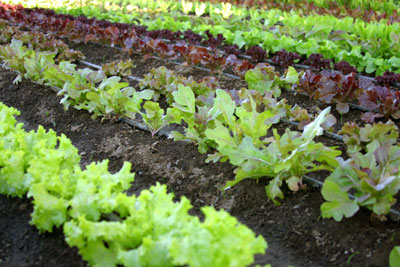
This cap is still unregulated markets and the farmer is still very unprotected. What mechanisms are needed so that the latter continues not exposed to the liberal policy imposed by these markets?
Well, what can do in this regard it is very clear, to the margin to have instruments of punctual regulation like an intervention, a price of entrance, a contingent... All this supervised and controlled. They are mechanisms that traditionally have worked, was cual went his cost, if it is that had any. In the case of the private storage that the prices adjust to the reality. Basically, that are mechanisms that allow to act of automatic form, without having to ask permission to Brussels. At the same time, the agriculturalist has to go out of the norms of competition. The sector possesses a singularity that does not have reason be subject to said norms. If we have to guarantee quality and alimentary hygiene, that was to a reasonable price: we can not be subjected to abusive situations. It can not have margins that surpass 1.000%. The distribution subjects to the sector to a pressesure that comports also a loss of quality. It has not set up the trazabilidad: of where it proceeds the product, to which price has sold in the market of origin… this has to know . It does some months, the board of Andalucia carried out some inspections in 25 points of sale of Jaén. We could show that in 14 of them it sold oil of virgin olive extra that in reality was not it. It is missing control, does not exist a penalizing diet that was worth it. And finally, it gives a situation in the markets that gives foot to that a lot of manufacturers do what was necessary to keep the prices and fulfil the requirements that demands the distribution.
The document presented by the Commissioner Ciolos nor puts stop to international trade. They fear that agreements such as the one signed with Morocco or with Mercosur is only the beginning?
Is evident. All that that do not wish to produce under criteria of quality and hygiene manufactures generic products or white marks that what do is to confuse. We do not know what there is inside each product neither of where proceeds. This can not be, it is necessary to contribute transparency to the market and offer guarantees to the users. We negotiate collective agreements to pay the wage of the workers, although they have increased us the costs to the hour to buy fuels, fertilizantes, phytosanitary ware and seeds. Besides, in the greater part of the cases, buy in cents and to the hour to sell, do it in pesetas. In general, the arrival of the euro has prejudiced us. The precise market transparency, trazabilidad of the foods, quality and alimentary hygiene. It is not the same a tomato that produces in Morocco, to base of substances forbidden in the EU from 20 years ago, to the tomato that cultivates here.
There is a question that seems me very important. When we speak of a preferential agreement, want to think that the conditions sociolaborales, economic and environingingmental are resembled ours. We would not hold an agreement, in big quantities, with Mercosur. It would sink us. And neither we can accept an agreement to greater with Morocco, a case that for us already brushes the limit. The day that ratify this agreement, go to have a lot of difficulties with the strawberry in Huelva. On the other hand, the tomato has a price of entrance of 0,45 euros and for us some costs of production of 0,55. This is like this and are hammering us. Morocco does not fulfil with the contingents, does not adjust to the calendars established and besides a lot of of the production that goes in in our country and in other European countries exports afterwards as if it was ours commodity and is not it. It is the effect known as of the triangulation. There is not control in the borders and this is a desmadre.
Once submitted this document, what are the next steps to be followed from the European Commission? As an agrarian organization, what they think do about it?
We will continue to work to convince that we need a change of orientation in agricultural policy, that public money is well used and most importantly: ensure that the European market leave us enough space to live with dignity. With what purpose? Maintain jobs and maintain commitment to European society in the context of food security. We are aware that in the middle of next year is on the table the legislative proposal, the reform will be presented almost at the end of the year 2012 and, finally, the legislative text as such, in 2013. Until then, we will work in a context of State with the Government, the various political groups, the rest of professional agricultural and social organizations, etc. We will try to form a position of State which is transferred to the European Parliament. We will also have meetings at Community level. The last day 7, a delegation of COAG's six people travelled to Brussels. It was intended to get the final proposal which was put on the table, improve our living conditions and provide social welfare to the rural environment. In as to whether we are going to submit a proposal jointly, we have already established a permanent working group in the MARM. We will try to form a unity position, and thus, among all, the interests of our country.

